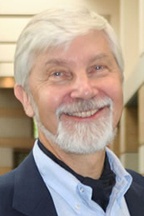
Since 1990, the United Nations has banned the transfer of arms to Iraq, Somalia, al Qaeda and 24 other nations and groups worldwide. Although these measures did not completely stop the flow of weapons, they did change the behavior of some targets, according to a new report co-written by University of Notre Dame peace scholar Peter Wallensteen.
Wallensteen and other researchers presented the report on Nov. 26 to member states of the United Nations. It was scrutinized the next day at a meeting of experts at the International Peace Academy.
U.N. arms embargoes have often been criticized as having limited impact,said Wallensteen, one of the authors ofUnited Nations Arms Embargoes: Their Impact on Arms Flows and Target Behaviour.
This is the first analysis of the 27 embargoes imposed since 1990. We found that, even when breaches of the ban were reported, the actors complied with U.N. demands in some situations. In addition, the embargoes were effective in changing behavior in about a quarter of the cases, and the more international surveillance there was, the more likely targets were to comply.
The report recommended a number of steps to improve the embargoes, including stronger border controls, the use of U.N. peacekeepers in surveillance, prosecution of known violators, and greater support from the permanent members of the U.N. Security Council.
The international community greatly needs more effective peaceful instruments to deal with conflicts,Wallensteen said.Fortunately, there are some fairly simple ways to strengthen the impact of arms embargoes.
Wallensteen, the Richard G. Starmann Sr. Research Professor of Peace Studies at Notre Dames Kroc Institute for International Peace Studies, is also the Dag Hammarskjold Chair in Peace and Conflict Research at Uppsala University in Sweden.The report, funded by the Swedish Ministry for Foreign Affairs, was a collaborative effort with the Stockholm International Peace Research Institute.
_ Contact: Peter Wallensteen, 574-631-0935,_ " Wallensteen.4@nd.edu ":mailto:Wallensteen.4@nd.edu
TopicID: 25647